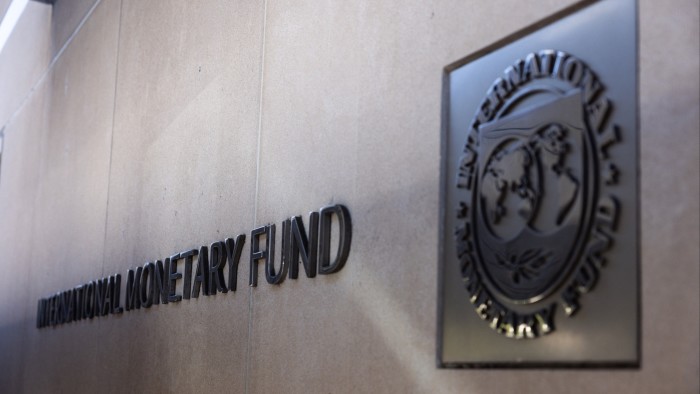Unlock the Editor’s Digest for free
Roula Khalaf, Editor of the FT, selects her favourite stories in this weekly newsletter.
Argentina has agreed to relax its strict currency controls as part of a $20bn loan from the IMF, as pressures mount on libertarian President Javier Milei’s plan to revive the economy.
The country’s central bank on Friday said it would lift the controls, which limit the movement of dollars outside of Argentina, for individuals while maintaining some restrictions for companies.
It will also partially float the peso’s official exchange rate, allowing it to fluctuate between 1,000 and 1,400 pesos to the dollar, compared with 1,108 pesos to the dollar today. This replaces a controversial policy that has strengthened the peso dramatically in real terms by devaluing the currency just 1 per cent a month despite much higher monthly inflation.
Economy minister Luis Caputo denied the change constituted a devaluation of the peso, something he has long pledged to avoid. He said the IMF would on Tuesday transfer an initial $12bn to Argentina, and another $2bn in June, which would be used to replenish the central bank’s nearly empty hard currency reserves and calm volatile markets.
“It’s true that such a large first disbursement is unprecedented, but it’s also unprecedented for a country to have fulfilled all of [the fund’s fiscal demands] in one year,” Caputo said.
The IMF’s board confirmed approval of the deal late on Friday, while the World Bank and Inter-American Development Bank announced separate funding packages worth $12bn and $10bn respectively.
The IMF deal, the 23rd for Argentina, a serial defaulter, had become increasingly urgent for Milei. While the former economist has curbed severe inflation, eliminated a chronic fiscal deficit and ended a recession, he has been unable to lift Argentina’s strict currency controls or rebuild the central bank reserves needed to prop up the peso and pay debts.

That has left Argentina vulnerable to the need for an abrupt official devaluation, which could reignite inflation and hurt Milei’s support ahead of October midterm elections. The market turmoil caused by US President Donald Trump’s tariffs has heightened that risk, hitting Argentine assets as well as prices for its soya and oil exports.
The central bank has been forced to spend $2.5bn to sustain the peso in less than a month, while the currency’s black market exchange rate has weakened sharply since early March, doubling the closely watched gap with the official rate, to 24 per cent.
The change in currency strategy, which has been a major tool to reduce price pressures, would “at the very least force the government to accept a pause in its bid to bring down inflation, which has been its main political narrative”, said Fabio Rodriguez, a director at Argentine financial consultancy M&R Associates.
“They will need to explain that to voters.”
Progress against inflation has been slowing. The monthly inflation rate rose to 3.7 per cent in March compared with 2.4 per cent in February, the national statistics agency said on Friday, far above economists’ forecasts, though seasonal factors contributed.
US Treasury secretary Scott Bessent is set to visit Argentina on Monday, in an apparent show of support for Milei from Trump, a close ideological ally who had some sway in negotiations as leader of the IMF’s largest stakeholder.
China also offered relief on Thursday by renewing a $5bn tranche of its $18bn currency swap with Argentina’s central bank, a credit line that makes up most of Argentina’s hard currency reserves. The Trump administration said this month it wanted the swap to “end”.

Argentina is already the IMF’s largest debtor, owing more than $40bn for its most recent programmes in 2018 and 2022, which failed to stabilise the economy.
But fund director Kristalina Georgieva said earlier this month that Milei’s performance had “earned” him a large disbursement — a reference to his feat of slashing spending by 5 per cent of GDP in his first year.
A deal that offered “clarity on the exchange rate” should unlock more private investment for Argentina, said Malcolm Dorson, head of emerging markets strategy at Global X ETFs. “Investors have been rightly concerned about the currency policy, so this opens the doors for corporates to start putting money into the country again, which would make Milei’s plan sustainable.”


